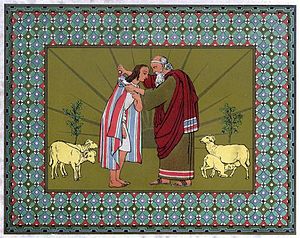Fire by Night Newsletters Dreamsharing is a seriously wonderful practice. It can also be a little risky, because dreams reveal your true colors, especially the ones you've never seen before. Double issue! Not quite double wordcount. First, a story. Then three principles for sharing dreams Next, another story. Then, a couple of points about how dreamwork makes more authentic people of us, and why that is a good thing despite the obvious inconveniences. If that sounds too much, start at the end and watch the YouTube videos. They are fabulous.  Story 1: True Colors The other day I shared a fresh dream with a roomful of people, just hours after I woke up from it. I NEVER DO THIS. It 's not wise, because even if you get a quick “Aha!” from your dream, you still don’t know the whole of it, and you end up sharing something your precious vulnerable ego might regret. However, because the dream seemed to be about getting over my protective habits, and because the audience was a roomful of librarians, i.e. the Trusted Storykeepers of the World, I told it. Now that you are drooling at the prospect of this juicy dream, I'm sorry: it'll disappoint. (And it involves coats in July, potentially a nightmare.) But here it is: I walk into a lecture hall, where people are gathering for a presentation. I’m wearing a striking flame-orange wool coat, midcalf length, with orange buttons patterned in concentric circles. I spot a woman I know, a civic leader (and real-life participant in one of my dream groups). As I sit down beside her, I see that beyond her another woman I know, also civic leader (who in waking life has offered me some helpful business advice). As I lean forward to greet them, my coat gaps open and I’m astonished to see the color of my blouse - a crimson so beautiful, so vivid and shining, that it seems almost alive. It's the color of a living heart. Quickly I close my coat, because this feels so personal and surprising, and I’m not ready for anyone to see this color. On one level, the dream points to that “yikes” of sharing something real or vulnerable about yourself that you didn’t realize you were saying. This happens all the time in dreamwork. When you tell a dream, you’re revealing your heart. The dream also reminded me that it’s often been my habit in waking life to hide my heart, sometimes beneath an overcoat of energetic presence. Learning to share from the heart has been sometimes terrible, but in most instances a lifegiving exercise in connection, compassion, and courage. It wears me out, so maybe that big orange ego coat is helpful boundary at times. The dream suggests it's time to connect with my inner “civic leader” energies for the practical good of the community. (The community would be both my internal energies and the literal community beyond myself.) What might happen if I spoke more freely, with heartfelt conviction about - everything? I trust there could be some changes for the general good. ************************************************************** So - to follow through on the work of dreamwork I'll experiment with Instagram posts this summer. Little heartbeats that could offer some truth and beauty. Or just fun. My helpers and I figured out the techie bits, so now you can follow me on Instagram at laurahuffdreamworker. Three Principles of Sharing Dreams Sharing your emerging self can be feel risky - but when you're ready telling dreams is a good way to start. Agreeing on a few basic principles for sharing dreams will make it go better. Below are three general principles. (Continue to the Tips and Titles section for a 5-step guide for partner dreamwork.) Humility – the dream is from the unconscious, so it presents something new, which usually suggests the next steps in the individuation process. Often, this news is upsetting to the Ego, because the dreamer has to change an attitude, integrate shadow energies, etc. And the dream is multi-layered, so neither you nor the dreamer will ever get the whole picture. Please go gently. The dreamer is sharing from the heart. As always, preface any remark with “In my dream…..” because you are speaking, after all, of your experience of the dream. Only the dreamer can know for sure what the dream means for them, and it may take awhile to get there. Honesty - The best way to understand another person’s dream is to let it get down inside you and work on your feelings as well as your thoughts. Take awhile to really listen with mind, heart, and even body. (How does it feel?) You can offer brilliant insights, which are very helpful. But your honest feelings sparked by your experience of the dream offer even more profound “Aha’s” for the dreamer. Again. Preface any remarks with the phrase, “IN MY DREAM….” because you are projecting. Curiosity – Good dreamwork includes wondering aloud, stepping into the perspectives of the various dream figures, and holding “Aha’s” lightly enough to continue learning from them. Art, dialogue, embodiment, ritual, and play are good ways to engage a dream with a respectful, fruitful curiosity.  Story 2 Joseph All this talk of coats and colors reminds me of another dreamer with a colorful coat. At the risk of offending some of my Bible buddies, let’s take a look at how unprincipled dreamwork went for Joseph (Genesis 37-50). He proclaimed his dreams in a superior tone, and his brothers, similarly unaware of good dreamwork principles, were provoked to violence. They threw him in a pit to die, but sold him into slavery when the opportunity arose. Of course God uses it all for good in the end (that's in the story too.) If you’re on the path you can’t fail too horribly. What if Joseph hadn’t been such a stuck-up little prig? What if his eleven brothers knew the principles of proper projective dreamwork ? Maybe that scene could have gone better, something like this: Joseph: Brothers! I had a couple of dreams that seem important. I’d like to see what you make of them. May I tell them to you? Brothers: The first principle of dream sharing is humility. Are you willing to believe that this dream may not be flattering to your ego? Joseph. Wow, I forget that part all the time. But, sure, I know God has a tremendous plan for my life and I am willing to hear it. Plus you have GOT to hear this, it involves you. Brothers.. Hmmm. Bro 1 -We’ll be honest. Bro 2 And stay curious. Joseph. Great! I dreamed there were twelve sheaves of wheat: all of yours bowed down to mine, which was in the center, naturally. Bro 1: Hmmm. In my dream, I remember that everything in the dream is a part of me. Bro 2: In my dream, harvest is about gathering the inner gold. Bro 3: Yes – in my dream, the middle sheaf isn’t the ego, it’s the Self, which organizes the collective riches of the whole psyche. I don’t control it, just connect with it. Bro 4 - In my dream, bowing is about recognizing : all my inner players know they are not more important than the divine image in me. My ego is really not in the center. Bro 5: Right, and the center sheaf is a collective thing – in my dream, I remember how every little stalk and seed comes to fruition naturally. I don’t have to stress, strive, or compete. Bro 6 – Getting honest here: in my dream, it looks like what happens at home: I have to play second fiddle to Dad's favorite. Bro 7 - Yep, In my dream, I am watching out for ego inflation. That way lies peril. Joseph – Wow guys, you are really helping me with that sheaf dream. But what about the Sun, moon, and stars? Really, they bowed down to ME. Not a symbol. Bro 8 – How’d it feel in the dream when that happened? Jo – Oooooo, grand!!! Like I was more fabulous than anything in the sky! Bro 9- You want to take a look at that? I mean, in my dream, if I’m more important than the SUN, the dream exaggerates as a form of compensation: it's trying to help me see my arrogance before something bad happens. Joseph. Aha! You’re right! I see that! So I will back off on acting so special all the time. Still, I like the coat. What do you think about this coat, is it a problem for you if I wear it? Bro 10 – You mean if you flaunt the fact that dad loves you best? Is that a problem for us, guys? Brothers – Well SURE, it’s a problem. Joseph – Maybe I could organize a rota for sharing it? Or cut it up and make bandanas for everyone? Or give it to our sister Dinah? What should we do? Maybe we could all dream on it? Bro 11 – Thanks, Joseph, for considering how we feel. This projective dreamwork is sure a great way to build authentic, compassionate community and even do some practical problem solving. *********************************************************** The reason the Bible version of this story finally ends well for the whole family - after years of lies, grief, slavery, scandal, imprisonment, famine, and finally, some good dreamwork skills - is because suffering finally opens into compassion, understanding, and trust for each other. I hazard to guess that with a certain amount of humility, honesty, and curiosity, they could have spared themselves the drama, and still headed off the famine. Be brave, be true, share your colors with those who will appreciate them, and don't let Ego run the show. Your deep Self, part of the infinite rainbow, is glad for the chance to shine. If you have any dreams that offer wisdom for collective healing and wholeness, I’d be grateful to hear them. Please send to [email protected]. I never share dreams without permission.
0 Comments
Leave a Reply. |
Archives
August 2022
|


 RSS Feed
RSS Feed


